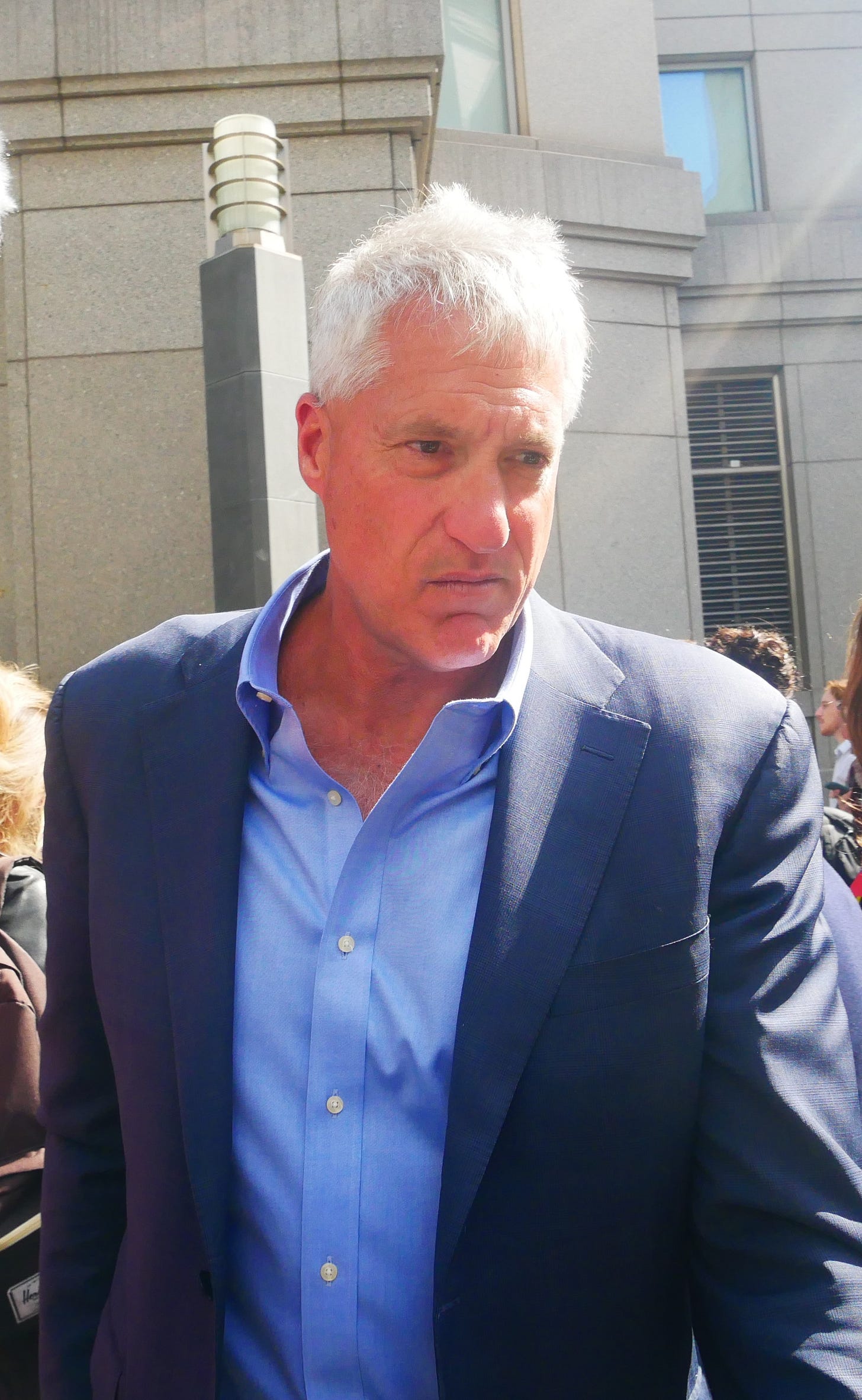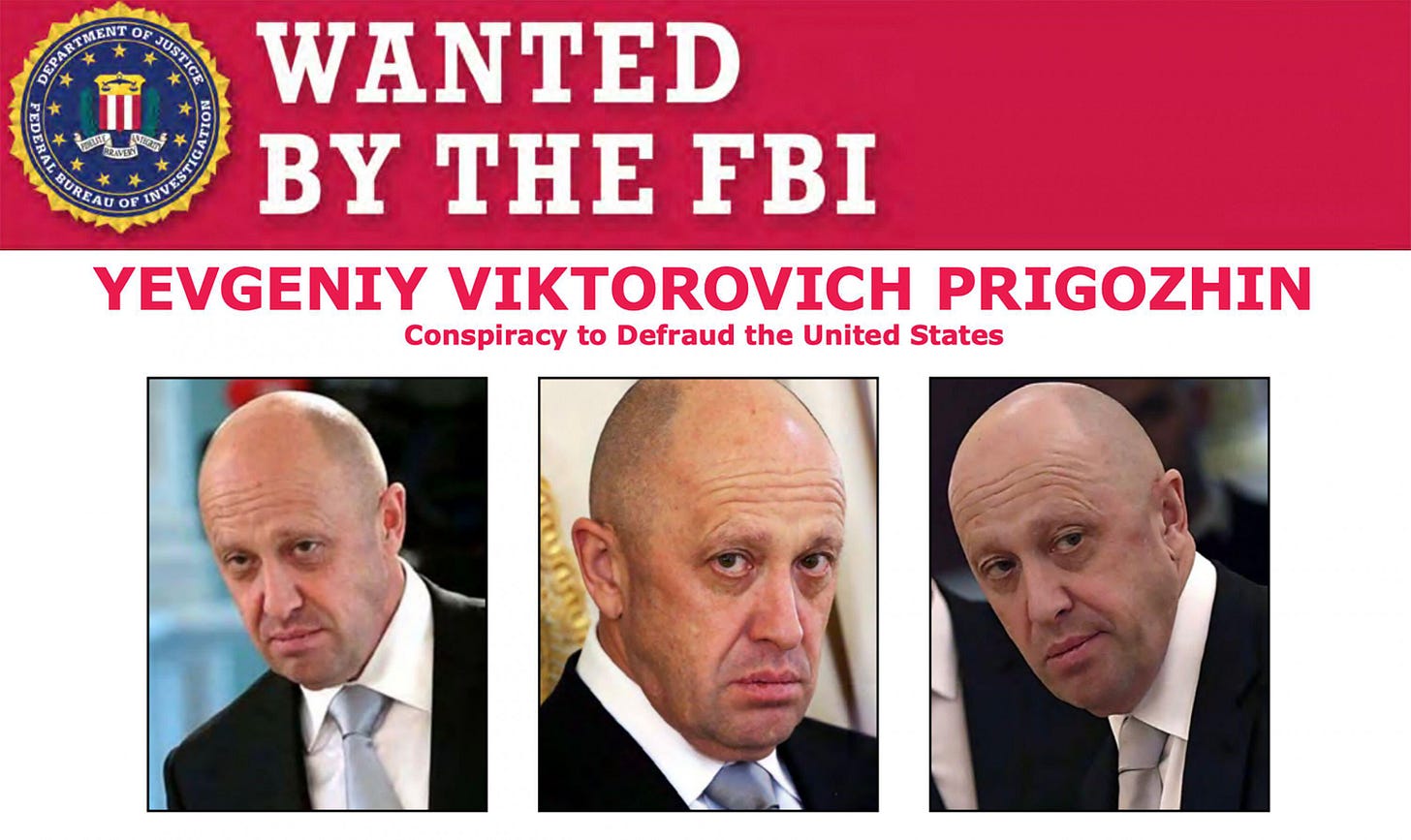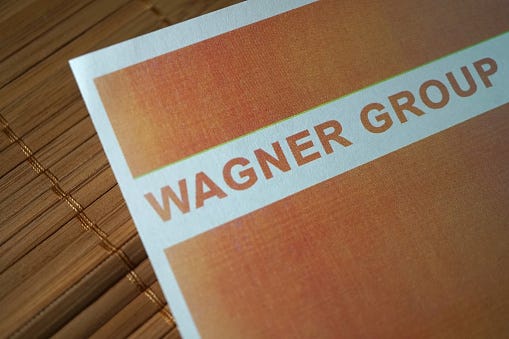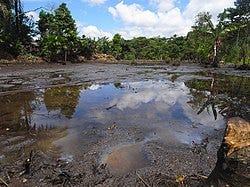Why Journalism Matters
Journalism is a bulwark for democracy, but subject to constant cyber threats. Do you know about the world's greatest environmental disaster, or who has been chosen corrupt person of 2022?
3 minute read
Journalism — helping to tip the balance in favour of democracy and freedom—while fighting off cyber threats

Freedom House, the Washington think tank which monitors the state of democracy around the world is using its New Year’s address to remind individuals that everyone can play a role in bolstering the seemingly declining state of democracy.
Freedom House president Michael Abramowitz made special mention of the importance of fact-based journalism and journalistic investigations—especially the importance of local journalism. Although he cited examples from the US, he spoke to the situation around the world.
“Independent journalism is one of the great bulwarks of democracy, and it is at enormous risk. Around the world, autocrats are using physical attacks and digital threats to deter or punish fact-based reporting. At the same time, the rise of social media and the collapse of traditional advertising-based business models have eroded the economic viability of many outlets, exposing them to pressure from key funders or owners.
Local media vulnerable
“Particularly vulnerable in the United States are local media, whose journalists often have the relationships, knowledge, and interest to investigate vital stories that national outlets don’t cover: The Courier-Journal in Louisville, Kentucky, won a Pulitzer Prize in 2020 for coverage of the state governor’s last-minute pardons, as did the Baltimore Sun for exposing corruption linked to the city’s public hospital system.”
Underlining those threats to journalism, it has emerged that two leading newsgathering operations in the UK have apparently been targeted by cyber attacks within the last 12 months.
The Guardian group suffered an apparent attack before Christmas. But even now the company has asked large numbers of staff to work from home until January 23.
At the time the incident was first reported, CEO Alan Bateson and editor-in-chief Katharine Viner told staff: “As everyone knows, there has been a serious incident which has affected our IT network and systems in the last 24 hours. We believe this to be a ransomware attack but are continuing to consider all possibilities.
“We are continuing to publish globally to our website and apps and although some of our internal systems are affected, we are confident we will be able to publish in print tomorrow. Our technology teams have been working to deal with all aspects of this incident, with the vast majority of our staff able to work from home as we did during the pandemic.”
Malware attack
(Ransomware is a type of malware that infects a system, locking or disabling its files until a ransom is paid to the perpetrators , often by cryptocurrency.)
In February 2022 , in an unrelated incident, News Corp chief technology officer David Kline warned staff about cyber attacks on the business.
(News Corp is one of the world’s largest newspaper publishers and owns several high profile titles including the best-selling Sun newspaper, The Times and Sunday Times in the UK. In the US it publishes The New York Post, The Wall Street Journal and related titles and information services.)
Kline added: “Our preliminary analysis indicates that foreign government involvement may be associated with this activity, and that some data was taken.
“Mandiant [a cyber security firm hired to investigate] assesses that those behind this activity have a China nexus and believes they are likely involved in espionage activities to collect intelligence to benefit China’s interests.
“We will not tolerate attacks on our journalism, nor will we be deterred from our reporting, which provides readers everywhere with the news that matters,” he added.
Newscorp reported repairing the security breach very quickly, but it is not known whether these attacks relate to editorial investigations at any of the papers.
Reference
Freedom House New Year’s Address
UK Press Gazette report on Guardian Ransomeware attack
5 minute read
How Chevron/Texaco polluted the Ecuadorian Amazon for decades, then refused to recognise court judgement awarding compensation to indigenous peoples

Many of you reading this may never have heard of the Steven Donziger, or the toxic waste disaster perpetrated in the Amazon by Chevron/Texaco, or the suffering it continues to cause for the indigenous peoples of the Ecuadorian Amazon.
But after reading this you may wonder (angrily) why this investigation and the story behind it are not more well known, and seriously question the power that international oil companies have over the world.
As activist campaigner Erin Brockovich writing in the Guardian earlier this year explained:
“Most people have probably heard of Chernobyl, or the BP oil spill. You may also know about my legal battle over contaminated water in California, dramatised in the movie Erin Brockovich.
“ Yet far fewer people have heard about what transpired in the Ecuadorian Amazon – though it’s considered by some activists, journalists, and members of US Congress to be one of the world’s worst environmental disasters.
“What if I told you that a multinational oil company allegedly polluted the Amazon for almost three decades? And that the oil company has spent even more years refusing to accept liability?
“Or that a US attorney who agreed to represent thousands of Ecuadorian villagers in a lawsuit against that oil company has lost his law licence, income, spent hundreds of days under house arrest in New York, and in 2021 was sentenced to six months in prison?”
And thus unfolds the story of the legal campaigner Steven Donziger, a graduate of the Harvard Law School, and his attempts to win redress for the indigenous Cofán tribe against the might of one of the world’s largest companies.
The best overall examination of the good, the bad, and the ugly in this tale—including of the fallibility of everyone involved-- is provided by way of an amazingly wide-ranging and detailed investigation/analysis written in late December by Katie Surma for the Inside Climate News website.
Her reporting took her all the way from Donziger’s New York apartment to the remote villages of the Ecuadorian Amazon. Recommended reading for all those who want a solid grounding in this astonishing saga.

Surma writes: “The $9.5 billion award he [Donziger] helped secure from an Ecuadorian court covered horrific pollution from oil production by Texaco (acquired by Chevron in 2001) that poisoned the rainforest with oil spills and billions of gallons of toxic wastewater.”
Both millions and billions
The Tech-Science magazine Gizmodo estimates 16 million gallons of crude oil were released into the Amazon basin from the 1970s onward, 80 times more than was spilled in BP’s 2010 Deepwater Horizon disaster in the Gulf of Mexico.
Gizmodo also reveals that the company dumped billions of gallons of toxic waste into hundreds of unlined waste pits in the lush rainforest ‘using disposal processes that had long been outlawed in Texas’.
But not one of Donziger’s original 30,000 Ecuadorian clients--who are suffering and dying from cancers and other diseases believed to be related to the oil spills--has received a penny of compensation, either from the original judgement or from the Ecuadorian government.
Like many corporations (and rich private individuals) Chevron has found it more cost effective to litigate against court judgements than pay compensation awards, intimidating plaintiffs with legal costs which they cannot afford.
A report on Chevron’s worldwide practices by eminent anthropologist/sociologist Dr Nan M Greer, a recognised expert on indigenous rights, makes the following revelations:
“Among the cases examined in this report, only 0.006% of fines, court judgements, and settlements have been paid, $286-million paid, and another $50.5-billion pending. The company has litigated against virtually every claim made against it for crimes of pollution, corruption, tax evasion, and human rights violations.”
Donziger’s original suit was countered by Chevron who brought an action against him under federal Racketeer Influenced and Corrupt Organizations Act (RICO) in New York.
Judgement unenforceable
According to Surma: “Among other things, Donziger was accused in the countersuit of forging an expert’s signature, blackmailing a judge, facilitating the ghostwriting of a key piece of evidence and bribing other Ecuadorian judges—acts that Donziger either denies or says were not illegal in Ecuador.
“…the RICO lawsuit, along with a similar decision from an international arbitration tribunal, has so far made the $9.5 billion Ecuadorian judgment unenforceable despite attempts by plaintiffs to collect damages in Canada, Argentina and Brazil, among the many countries where Chevron has assets.”
Donziger was ultimately charged with contempt of court through an unusual procedure which involved the judge in the RICO case appointing a private prosecutor to pursue the charge after the original criminal case was dismissed by a US attorney in New York.
Donziger doggedly resisted attempts to recoup costs and legal fees by Chevron and turn over his computer and other electronic devices. He was ultimately convicted on the Contempt of Court charge and served one month of a six month prison sentence. Following that he was forced to wear an ankle bracelet for an extended period of time.
But perhaps the most poignant episode in Katie Surma’s report for Inside Climate News involves the story of Emergildo Criollo, a leading member of the indigenous Cofán tribe known as ‘the water people’ because of their reliance on canoes and the Aguarico River. She travelled almost 3,000 miles to the Ecuadorian Amazon to visit his home.
“He believes Texaco’s oil exploration caused the deaths of two of his children and his wife’s uterine cancer by polluting their water. Criollo became involved in the lawsuit brought by Donziger and others in 1993, when he was a young man, and went on to become one of the most visible plaintiffs.
No justice
“There is a weariness to Criollo, now in his 60s, as he remembers the day he lost his second child, who accidentally swallowed oil-contaminated water while swimming. He’s told the story to many journalists over the last two decades. None of their articles and books have delivered justice for Criollo’s children. Neither have three decades of litigation, spanning at least six countries, at a cost of hundreds of millions of dollars in legal expenditures and attorney fees.
“I’ve fought for 22 years on this case, I have nothing to show for it,” he says as one of his grandsons, wearing a Spider-Man top, crawls into his lap.”
Despite everything, Donziger continues his fight against Chevron and continues to campaign for better international environmental laws and regulation, supported by Nobel laureates and members of the US Congress who want President Biden to pardon him.
Sadly, this case adds to the growing evidence that the world’s legal system most often benefits those organisations with resources and money to manipulate it, and the lawyers who work for them. Too often it proves wholly inadequate in providing natural justice and compassionate care for those who have been clearly victimised by the willfull destruction carried out by ipowerful nternational agents acting with impunity.
Reference
Inside Climate News report by Katie Surma
4 minute read
A new kind of villain is named as Corrupt Person of the Year

Spy thriller villains on cinema screens often get their just desserts at the end of the film when their hidden island lairs are blown up, or their getaway submarine is spectacularly torpedoed.
In the real world, larger-than-life rogues more often survive and persist in an environment where they are protected by battalions of international lawyers who shield their corrupt money and assets—and guarded by mercenary armies.
Such a person is the Russian oligarch Yevgeniy Prigozhin. In the last days of 2022 he was named “Person of the Year” by the Organised Crime and Corruption Project as the individual who has excelled at criminality and corruption over the past 12 months.
Since 2012 the OCCRP global investigative journalism collective has been choosing an individual or organisation that represents the most odious aspect of crime and corruption over the past 12 months. This corruption is one of the major factors that blights the progress that can be made by governments supported by honest citizens/companies who pay taxes to fund public services.
Last year the winner was Belarusian dictator Alexander Lukashenko and before that came Brazilian president Jair Bolsonaro.
But Prigozhin represents a new type of malevolent actor who works behind the scenes to support the wider corruption practiced by Mafia states like Putin’s Russia.
Instigating terrorism
Louise Shelley, one of this year’s OCCRP judges and an expert on illicit financial flows at George Mason University in the US , had this to say about Prigozhin: “[He] represents a new type of winner. Not a national leader, but a corrupt individual capable of instigating terrorism and massive human rights violations in diverse conflicts around the world.”

Prigozhin is the leader of the notorious Wagner Group, a paramilitary organisation backed by the Russian armed forces that arose in the wake of Russia’s initial attack on Ukraine in 2014. It boasts flashy, modern headquarters in St. Petersburg.
As OCCRP reports: “ Wagner Group fighters have become notorious for the trail of blood they left in conflict zones across the world. In their brutal defence of the Assad regime in Syria, Prigozhin’s mercenaries cemented their reputation as Putin’s dark enforcers, carrying out missions the Russian army will not conduct openly — or cannot do at all.”
Most recently, Prigozhin and the Wagner Group have been playing a prominent role in the war in Ukraine, and may well prove decisive in upcoming battles on the ground.
To fight this war Prigozhin has been allowed to recruit convicted criminals from Russia’s prisons, many of whom have suffered a grim fate if they decide they don’t want to fight once they get to the combat zone.
(Prigozhin himself is a former convict who spent much of his 20s in jail following convictions for robbery, fraud, and prostitution.)
Prigozhin first became wealthy by winning lucrative catering contracts for the Kremlin which earned him the sobriquet of ‘Putin’s Chef’. But in the mid-2010s his schemes took a dramatic twist towards the geopolitical and technological.
Employed trolls
His so-called “Internet Research Agency,” which employed trolls to spread disinformation and propaganda, became infamous for its attempts to interfere in U.S. politics, thus attracting the attention of the FBI who indicted Prigozhin in 2018.
In February of that year a federal arrest warrant was issued after Prigozhin was charged with conspiracy to defraud the United States. The FBI issued the following statement in relation to the charges:
“Yevgeniy Viktorovich Prigozhin is wanted by the FBI for his alleged involvement in a conspiracy to defraud the United States by impairing, obstructing, and defeating the lawful functions of the Federal Election Commission, the United States Department of Justice, and the United States Department of State. This occurred in Washington, D.C., from early 2014 to February 16, 2018. Prigozhin was the primary funder of the St. Petersburg-based Internet Research Agency (IRA).
“He allegedly oversaw and approved their political and electoral interference operations in the United States which included the purchase of American computer server space, the creation of hundreds of fictitious online personas, and the use of stolen identities of persons from the United States. These actions were allegedly taken to reach significant numbers of Americans for the purposes of interfering with the United States political system, including the 2016 Presidential Election.”
Recent investigations by The Intercept in the US have also found business links between many leading US and British law firms and Prigozhin’s legal team in Russia.
“[They] worked on his behalf to contest sanctions; defend him against U.S. prosecution; discredit journalists investigating his shadowy businesses; and sue Eliot Higgins, the founder of the investigative website Bellingcat.”
Prigozhin is a soldier of corruption,” says OCCRP’s Sullivan. “He fights and murders to install corruption. Wagner is nothing more than an organised crime group sanctioned by the Russian government.”
Reference
OCCRP Corrupt Person of the Year 2022
The Intercept: Mercenary lawyers shield Prigozhin
It’s free to subscribe and you can cancel anytime, so give it a try!
Contact us on greatjournalismwjm@gmail.com
Follow us on Facebook and Twitter
facebook.com/whyjournalism matters
twitter @JournalismWhy
Et maintenant disponible en français!





